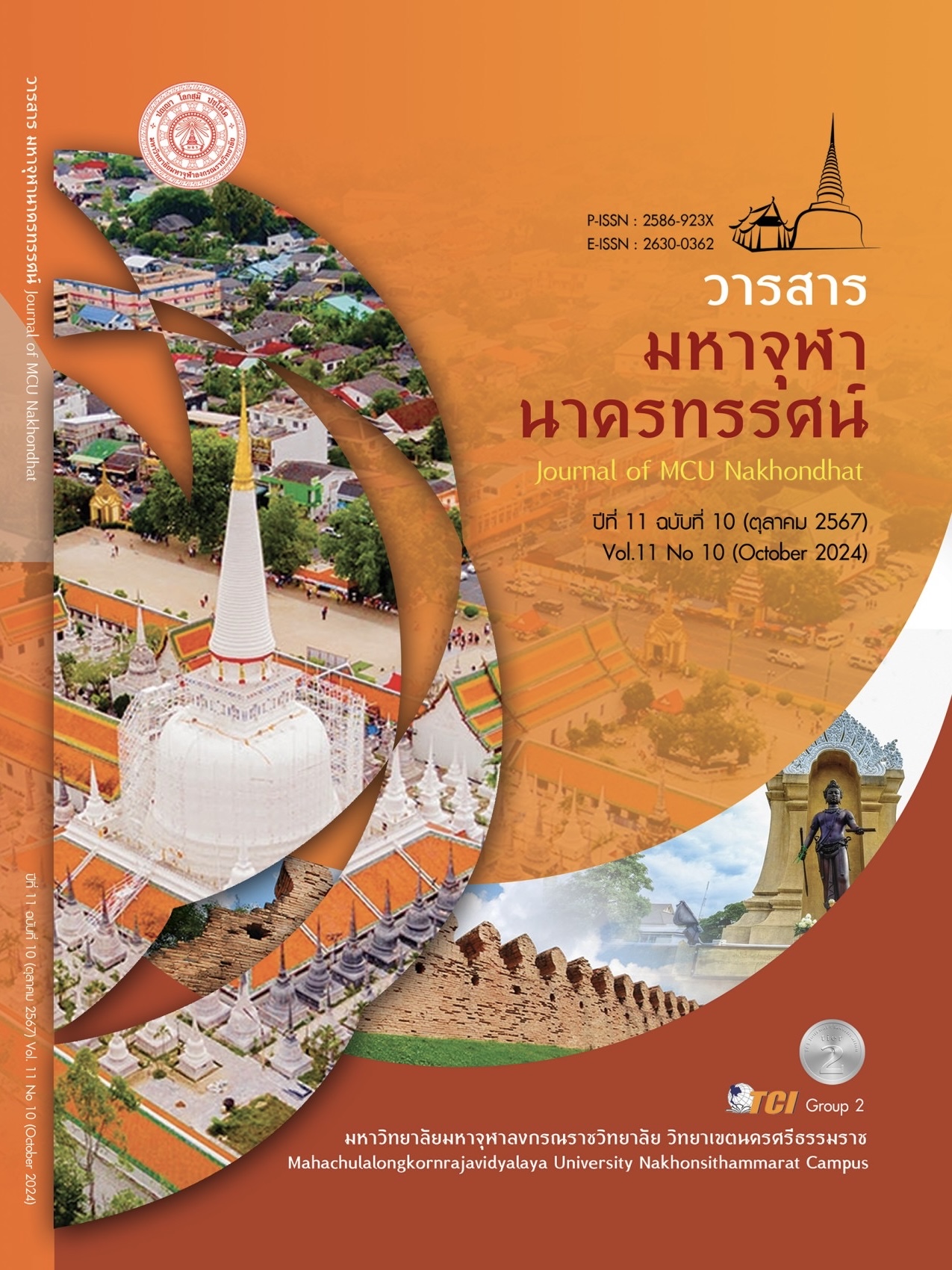USING THE INNOVATION ACTIVITIES PROGRAM TO PRACTICE THE CRITICAL THINKING SKILLS FOR HIGHER EDUCATION STUDENTS IN THAILAND
Main Article Content
Abstract
The objectives of this research article were to evaluate the model of the innovation activities program to practice the critical thinking skills for the higher education students in Thailand and to try out the innovation activities program to practice the critical thinking skills for the higher education students in Thailand. The research methodology is mixed methods research by quantitative research in the form of quasi-experimental research and qualitative research. The sample group consists of the higher education students in the university in Thailand 17 students. The research instruments are the activities program model evaluation form total 5 forms and in-depth interviews form. The research findings were the evaluation model of the Innovation Activities Program to Practice the Critical Thinking Skills for the Graduate Students in Thailand using the principles of a standard evaluation system, meta-evaluation criteria have been proposed. That is divided into 4 standards; 1) Accuracy, overall, the average score for accuracy and comprehensiveness was 4.96. The evaluation criteria were at the level the most accurate. 2) In terms of propriety, overall, there was an average propriety score of 5.00. The evaluation criteria were at the level the most appropriate 3) Feasibility of use, overall, the average score for feasibility of use was 4.84. The evaluation criteria were at the level the most likely 4) Utility, overall, the average usefulness score was 4.92. The evaluation criteria were at the level the most useful. And tried out the program with 17 higher education students in Thailand to confirm the suitability and feasibility of adopting an innovation model of using the activity program to train students' critical thinking skills. The study has a total of 6 activities. It was found that students have cognitive skills according to the objectives of the activities.
Article Details

This work is licensed under a Creative Commons Attribution-NonCommercial-NoDerivatives 4.0 International License.
References
กฤติกา สังขวดี. (2563). ผลการใช้นวัตกรรมแบบผสมผสานเพื่อส่งเสริมการรู้สารสนเทศกระบวนการ DMAIC ในศตวรรษที่ 21 สำหรับนักศึกษาระดับอุดมศึกษา. วารสารปัญญาภิวัฒน์, 12(1), 291-303.
กานต์สินี จันทร์วิภาดิลก. (2550). การศึกษาวิเคราะห์ระบบคิดเพื่อการดำเนินชีวิตตามแนวพุทธศาสน์. ใน วิทยานิพนธ์พุทธศาสตรมหาบัณฑิต สาขาวิชาพุทธศาสนา. มหาวิทยาลัยมหาจุฬาลงกรณราชวิทยาลัย.
ผ่องนภา พรหมเกษ. (2566). ปัจจัยที่ส่งผลต่อการคิดอย่างมีวิจารณญาณของอาจารย์ที่มีต่อนักศึกษา. วารสารมหาจุฬานาครทรรศน์, 10(4), 409-425.
พรรณี แพงทิพย์ และสิทธิชัย แพงทิพย์. (2565). การพัฒนาทักษะการเรียนรู้โดยใช้บทเรียนออนไลน์เรื่อง การคิดแก้ปัญหาผ่านตัวเลขเพื่อเสริมสร้างความสามารถด้านการคิดอย่างมีวิจารณญาณของนักเรียนชั้นประถมศึกษาปีที่ 5. ใน การประชุมวิชาการระดับชาติเครือข่ายวิจัยสถาบันอุดมศึกษาทั่วประเทศ ครั้งที่ 15. มหาวิทยาลัยศรีนครินทรวิโรฒ.
พระเทพเวที (ประยุทธ์ ปยุตฺโต). (2534). การพัฒนาจริยธรรม. (พิมพ์ครั้งที่ 2). กรุงเทพมหานคร: ภาควิชาปรัชญาและศาสนาวิทยาลัยครูสวนดุสิต.
วิจารณ์ พานิช. (2555). วิถีสร้างการเรียนรู้เพื่อศิษย์ในศตวรรษที่ 21. (พิมพ์ครั้งที่ 1). กรุงเทพมหานคร: มูลนิธิสดศรี-สฤษดิ์วงศ์.
ศิริชัย กาญจนวาสี. (2554). ทฤษฎีการประเมิน. (พิมพ์ครั้งที่ 7). กรุงเทพมหานคร: สำนักพิมพ์แห่งจุฬาลงกรณ์มหาวิทยาลัย.
สุชานันท์ วรวัฒนานนท์. (2565). การจัดการเรียนรู้แบบปรากฏการณ์เป็นฐาน เพื่อพัฒนาทักษะการคิดอย่างมีวิจารณญาณและการแก้ปัญหาเรื่องปรากฏการณ์ของโลกและภัยธรรมชาติของนักเรียนชั้นประถมศึกษาปีที่ 6. ใน วิทยานิพนธ์การศึกษามหาบัณฑิต สาขาวิชาวิทยาศาสตร์ศึกษา. มหาวิทยาลัยนเรศวร.
อรพรรณ ลือบุญธวัชชัย. (2543). การคิดอย่างมีวิจารณญาณ: การเรียนการสอนทางพยาบาลศาสตร์. (พิมพ์ครั้งที่ 1). กรุงเทพมหานคร: ธนาเพลส แอนด์ กราฟฟิค.
อรุณ ศรีโนนยาง. (2563). การพัฒนาทักษะการคิดอย่างมีวิจารณญาณด้วยการเรียนรู้ เรื่องพันธะโคเวเลนต์ของนักเรียนชั้นมัธยมศึกษาปีที่ 4. วารสารบัณฑิตศึกษา มหาวิทยาลัยราชภัฏวไลยอลงกรณ์ ในพระบรมราชูปถัมภ์, 14(2), 229-240.


